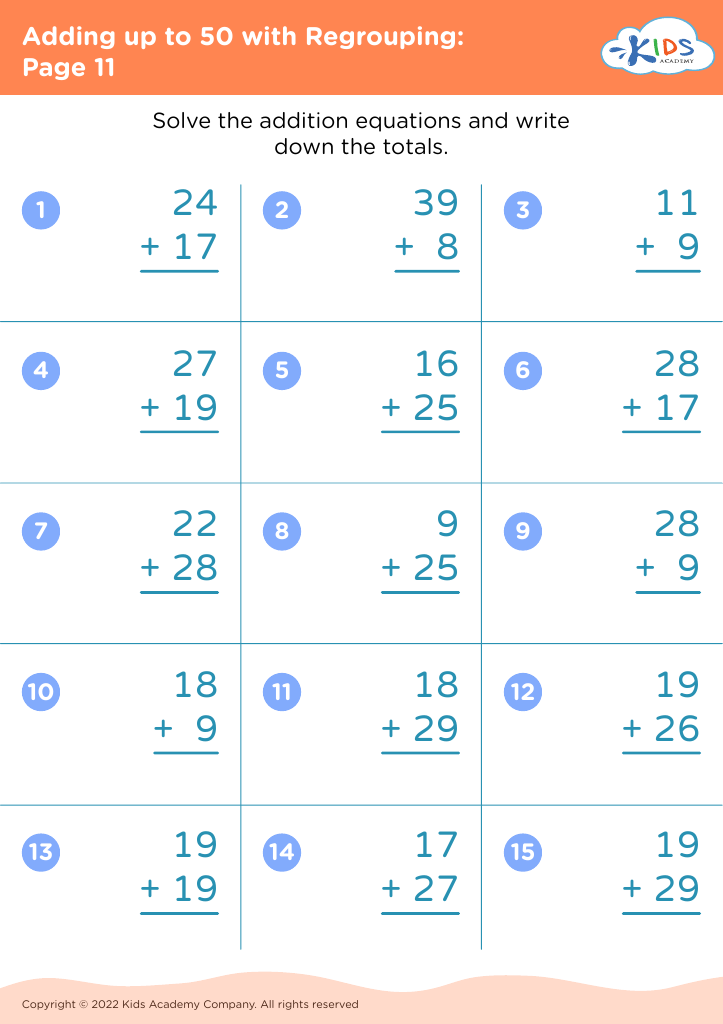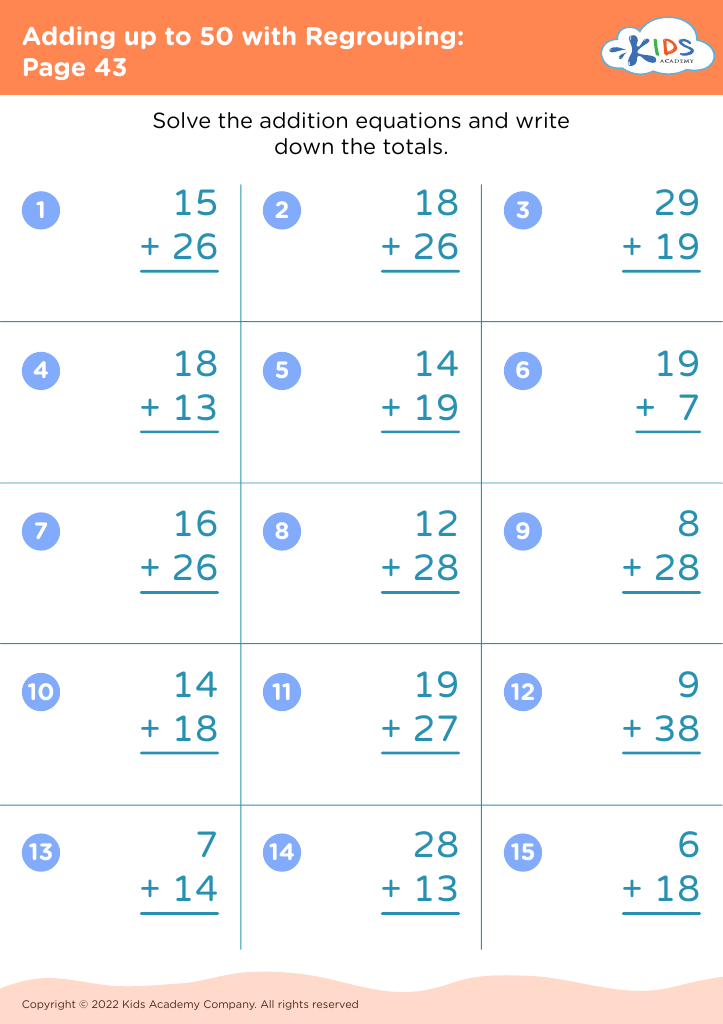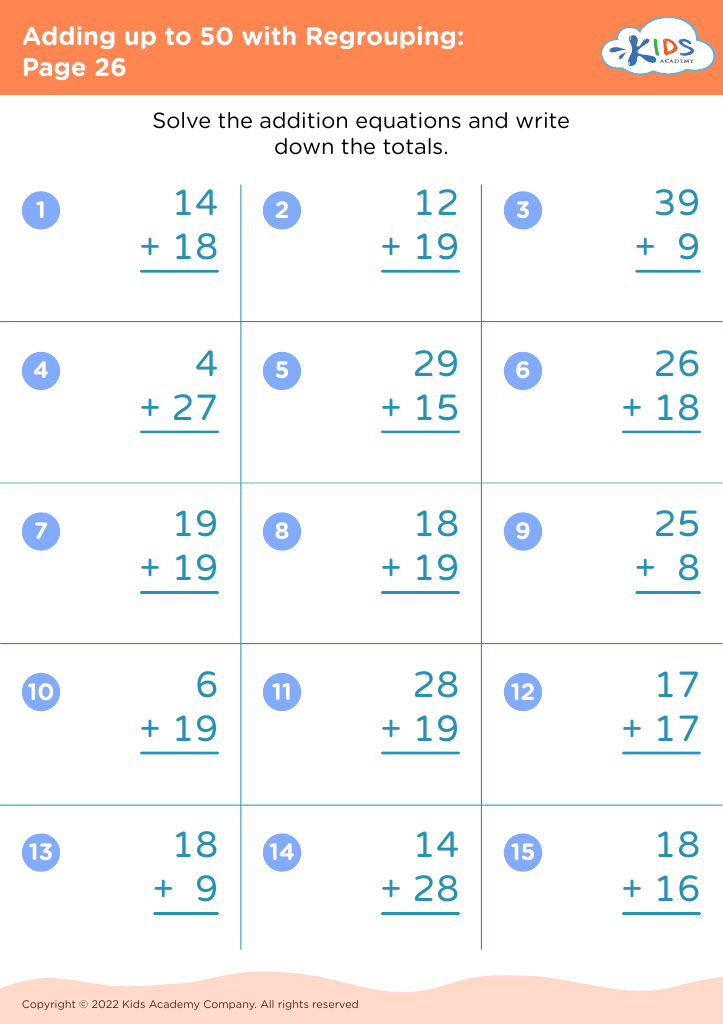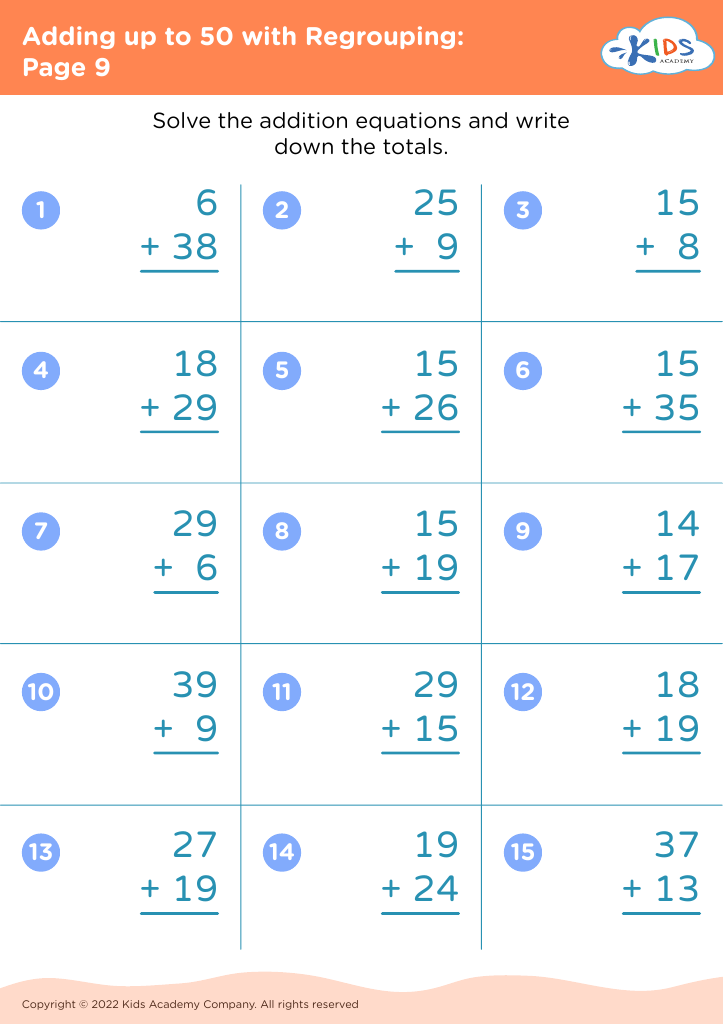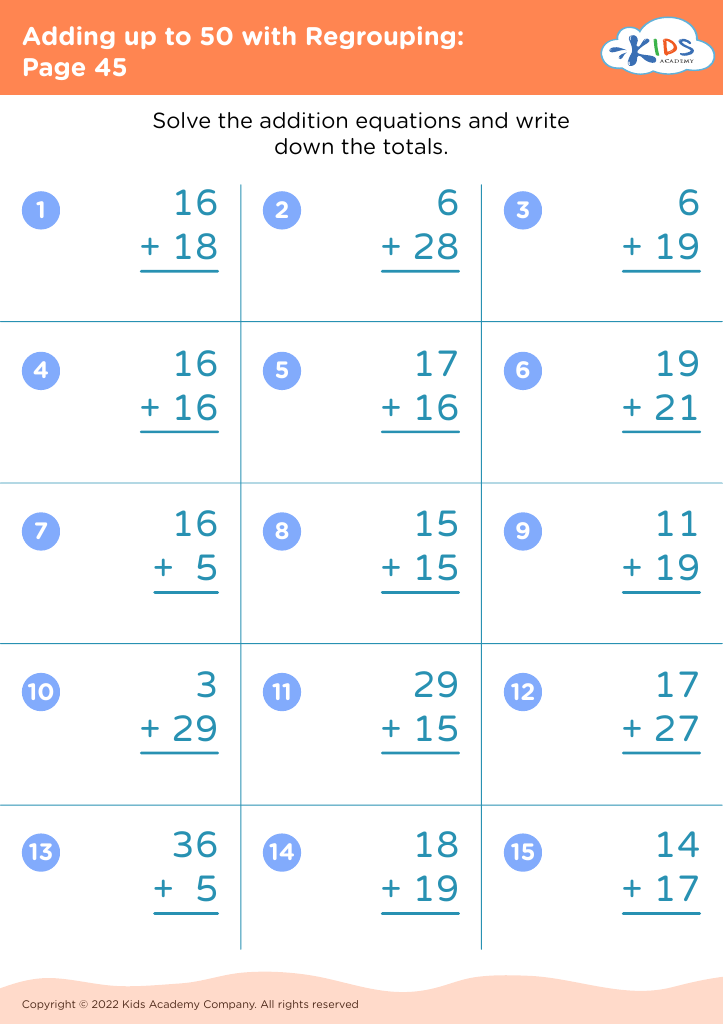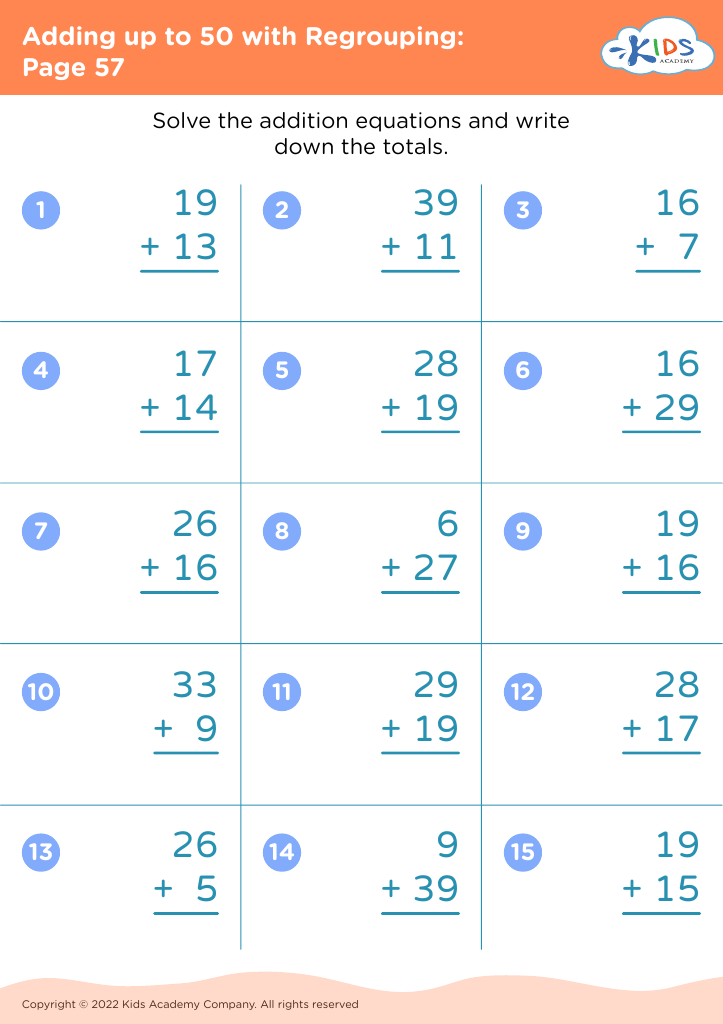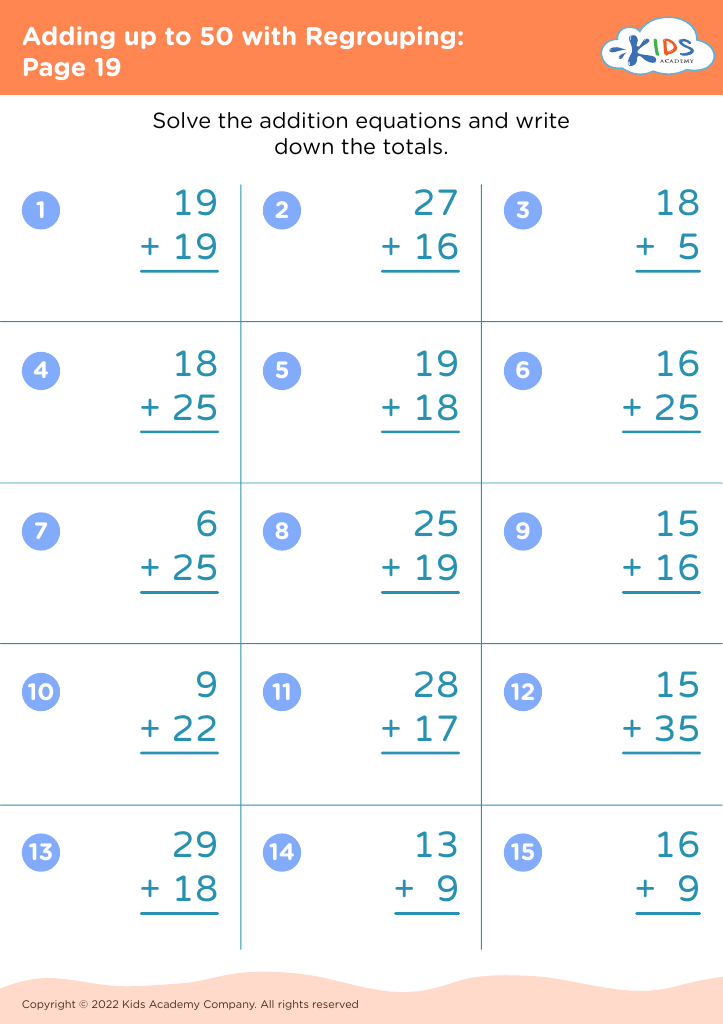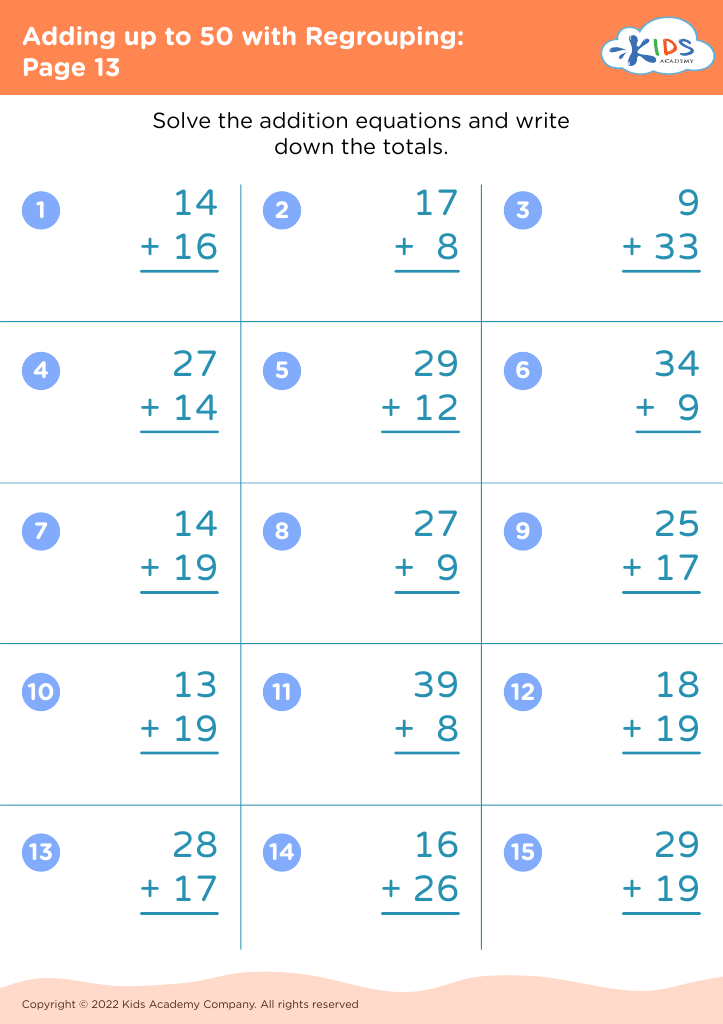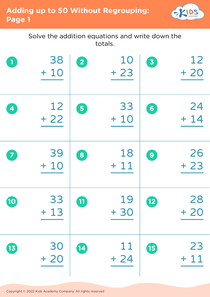Counting skills Adding up to 50 with Regrouping Worksheets for Ages 5-8
13 filtered results
-
From - To
Enhance your child’s math abilities with our "Counting Skills: Adding up to 50 with Regrouping Worksheets" designed for ages 5-8. These expertly crafted worksheets aim to build a strong foundation in addition through engaging exercises and regrouping techniques. Each worksheet offers step-by-step instructions to simplify complex problems, ensuring children grasp regrouping concepts effortlessly. Perfect for classroom use or extra practice at home, these resources align with educational standards, fostering both confidence and competence in young learners. Discover a fun and effective way to advance your child’s counting skills and prepare them for future math success!
Counting skills and early arithmetic are foundational abilities that significantly influence a child's future academic success and daily life proficiency. Introducing counting up to 50 and understanding regrouping (often known as carrying) around ages 5-8 provides a crucial stepping stone in their mathematical journey.
Firstly, these early math skills boost cognitive development. They help children understand number sense, which is the ability to recognize, relate, and manipulate numbers in a meaningful way. Mastering counting skills and regrouping prepare children for more complex mathematical concepts they'll encounter later.
Secondly, proficiency in counting and basic operations bolsters problem-solving skills. Kids learn to approach problems methodically and develop logical thoughts. Educators note that early success in math increases self-confidence, fostering a can-do attitude towards challenging tasks.
Furthermore, counting and regrouping form critical life skills. Whether they're counting money, measuring ingredients in a recipe, or determining time intervals, these basic arithmetic skills are utilized daily.
Finally, early introduction to these concepts aligns with educational standards and ensures children keep pace with curriculum expectations. This support from parents and teachers provides a structured yet encouraging environment for young learners.
In short, caring about these skills equips children with essential tools that serve them academically and in their everyday lives, setting the stage for continued success.

